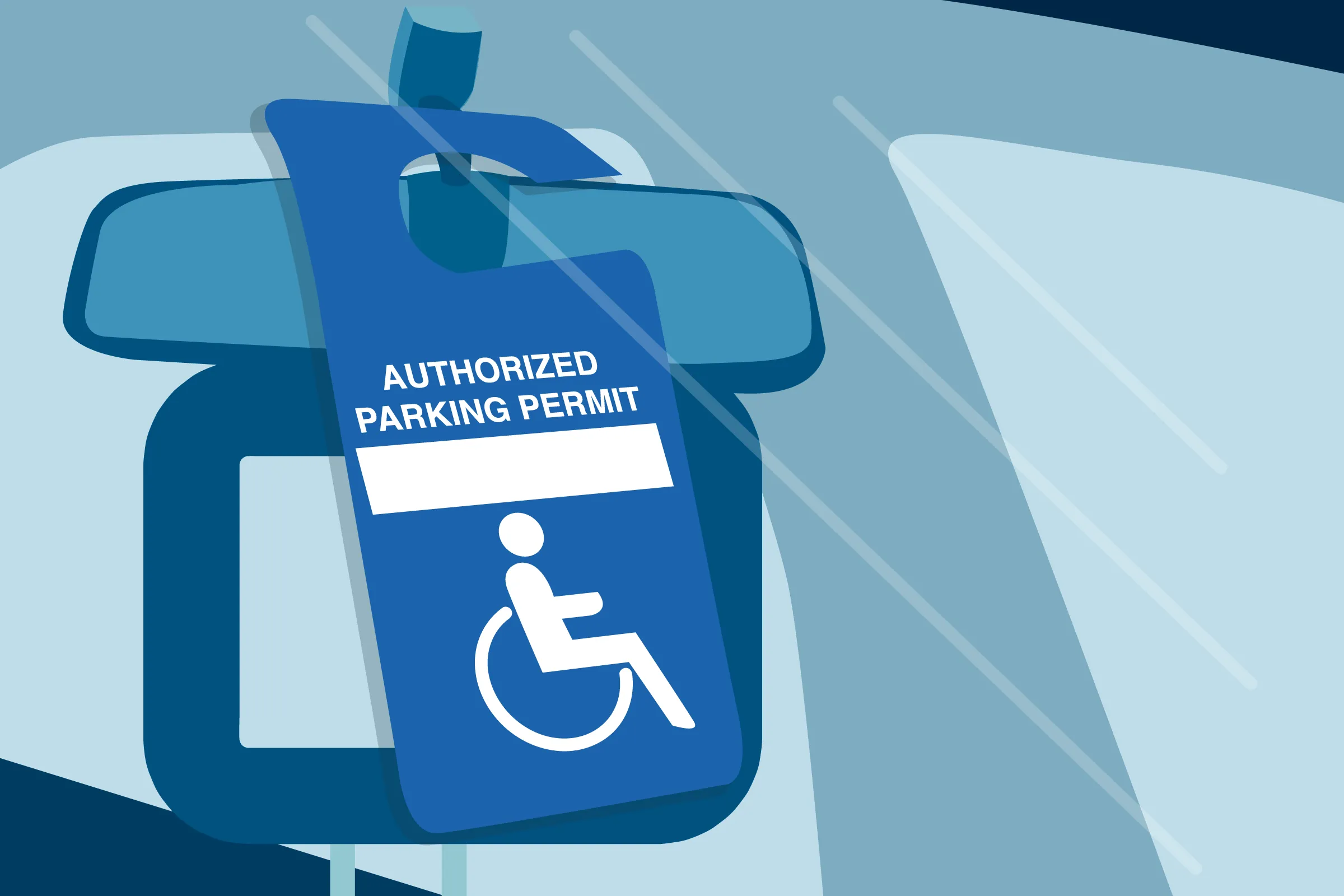Understanding Disabled Parking Permits Eligibility, Types, and How to Apply
Navigating the world with a disability can present many challenges, and one critical aspect of making daily life more manageable is having access to proper parking.

Navigating the world with a disability can present many challenges, and one critical aspect of making daily life more manageable is having access to proper parking. Disabled parking permits play a crucial role in providing those with eligible disabilities easier access to businesses, apartments, and other essential locations. These permits allow individuals with mobility issues or other qualifying conditions to park in designated spots closer to building entrances. However, depending on whether you have a permanent or temporary disability, the type of permit you need may differ. In this blog, we will delve into who qualifies for a handicap parking permit, the various types available, and the steps to obtain one.
Who Can Qualify for a Handicap Permit?
Eligibility Criteria
A handicap parking permit is designed to assist those with disabilities that make it difficult to access buildings from a parking lot. This usually involves physical conditions that impair mobility or other conditions that impact walking. Some common qualifying conditions include:
- Diseases that affect mobility or breathing, such as arthritis, asthma, or heart disease.
- Loss of use or limited use of limbs, which can significantly hinder movement.
- Dependence on assistive devices, like wheelchairs, crutches, or canes.
- Use of portable oxygen tanks to aid with breathing.
- Vision issues, including poor vision at night or general visual impairment.
- Neurological impairments that affect movement or balance.
- Chronic pain or fatigue, which can limit physical activity.
- Pain from recent injuries or ongoing medical treatments.
- Recovery from recent surgery or ongoing cancer treatments.
Eligibility for a handicap permit can vary by state, but generally, it does not require specific car insurance or vehicle ownership since it can be used in any vehicle where the permit holder is a passenger. To obtain a permit, you will typically need a licensed physician or nurse practitioner to verify your disability, along with valid photo identification, such as a driver’s license.
What Types of Handicap Permits Are There?
Permanent Handicap Placard
A permanent handicap placard is intended for individuals with long-term or permanent disabilities. This includes those with chronic conditions, severe visual impairments, or significant mobility issues. Permanent placards usually have a longer validity period, often requiring renewal every few years. For instance, in California, permanent placards must be renewed every two years, while in Nevada, the renewal is required every ten years.
These placards are generally hung from the rearview mirror of the vehicle. Alternatively, in some states, you might have the option to get a license plate that indicates your handicap status, which may involve additional costs.
Temporary Handicap Placard
Temporary handicap placards are available for individuals with short-term disabilities, such as those recovering from a broken leg or surgery. The duration of these permits varies by state. For example, in Washington, a temporary placard is valid for up to 12 months, while in California and Nevada, it is typically valid for six months.
Like permanent placards, temporary ones should also be displayed from the rearview mirror. They are designed to provide access during the recovery period and are usually easier to obtain compared to permanent permits.
Disabled Veteran Placard or License Plate
Disabled veteran placards are specifically for veterans who were injured during military service. This type of permit provides similar parking benefits as a permanent handicap placard. In some states, this benefit is offered as a license plate rather than a placard. The regulations for disabled veteran parking privileges can vary significantly by state. For instance, while California allows disabled veteran license plates for parking in handicap spaces, Oregon may require a separate designated handicap placard to avoid fines.
Some states may also waive certain fees for disabled veterans, but this is not universal. For example, Wisconsin requires recertification every four years, while Oregon requires renewal only every eight years.
Travel Placard
If you hold a handicap permit and are traveling out of state, you might need a travel placard. Although handicap parking placards are typically honored nationwide, there are exceptions where a travel placard can help retain parking privileges or avoid additional fees. For example, California offers travel placards that can be used for 30 days for residents and 90 days for non-residents, while Oregon provides travel placards valid for 120 days.
Travel placards ensure that individuals with disabilities have consistent access to parking regardless of their location and can be particularly useful if you are using a different vehicle during your travels.
How To Get a Handicap Parking Permit
To obtain a handicap parking permit, follow these general steps:
-
Obtain Medical Verification: Start by getting your primary care provider or another licensed physician to confirm that you have a qualifying disability. They will need to provide documentation to support your application.
-
Submit an Application: Apply for the permit through your state's Department of Motor Vehicles (DMV). Depending on your state, you may be able to complete the application process online, by mail, or in person at your local DMV office.
-
State-Specific Requirements: Each state has different rules regarding the application process, fees, and renewal requirements. Some states may offer fee waivers for disabled veterans or other specific groups, while others may charge for initial applications or annual renewals.
Be sure to check your state's specific regulations to ensure you follow the correct procedures and provide all necessary documentation.
FAQs
1. Who is eligible for a handicap parking permit?
Individuals who have disabilities that significantly impair their ability to walk or access buildings are eligible. This includes those with conditions such as arthritis, asthma, heart disease, neurological impairments, or who use assistive devices like wheelchairs or crutches. Vision issues, chronic pain, and recent surgeries can also qualify you. A licensed physician or nurse practitioner must verify your disability.
2. What are the different types of handicap parking permits?
There are several types of handicap parking permits:
- Permanent Handicap Placard: For long-term or permanent disabilities. Typically valid for several years and requires renewal.
- Temporary Handicap Placard: For short-term disabilities, such as recovery from an injury. Valid for a few months to a year, depending on the state.
- Disabled Veteran Placard or License Plate: For veterans injured during military service. May be issued as a placard or license plate, depending on the state.
- Travel Placard: For individuals traveling out of state. Valid for a limited time, varying by state, and helps ensure parking access across different locations.
3. How do I apply for a handicap parking permit?
To apply for a handicap parking permit, follow these steps:
- Obtain medical verification from a licensed healthcare provider.
- Submit an application to your state's DMV, which can usually be done online, by mail, or in person.
- Check your state’s specific requirements, as application processes and fees may vary.
4. How often do I need to renew my handicap parking permit?
The renewal period depends on the type of permit and state regulations. Permanent placards usually need renewal every few years, while temporary placards are valid for a shorter duration, often between six to twelve months.
5. Are there any fees associated with obtaining a handicap parking permit?
Fees vary by state. Some states may charge for initial applications or renewals, while others, particularly for disabled veterans, might offer fee waivers. Check with your local DMV for details on fees in your state.
6. Can I use my handicap parking permit in any state?
Yes, handicap parking permits are generally honored nationwide. However, some states may have additional requirements or may issue travel placards for extended travel.
7. What should I do if I need a handicap parking permit but am traveling out of state?
If you are traveling out of state, you may need a travel placard to ensure you retain your parking privileges. Travel placards are available in some states and are valid for a specific duration, depending on where you are traveling.
8. Can I get a handicap parking permit if I don’t own a vehicle?
Yes, you can still obtain a handicap parking permit even if you do not own a vehicle. The permit can be used in any vehicle in which you are a passenger.
9. Is a handicap parking permit valid if I am using a different vehicle from the one it was issued for?
Yes, a handicap parking permit is valid regardless of the vehicle you are using, as long as you are a passenger in the vehicle.
10. What documentation is required to apply for a handicap parking permit?
You will need to provide medical verification from a licensed physician or nurse practitioner and valid photo identification, such as a driver’s license. Some states may have additional requirements, so it’s essential to check with your local DMV.
What's Your Reaction?



















